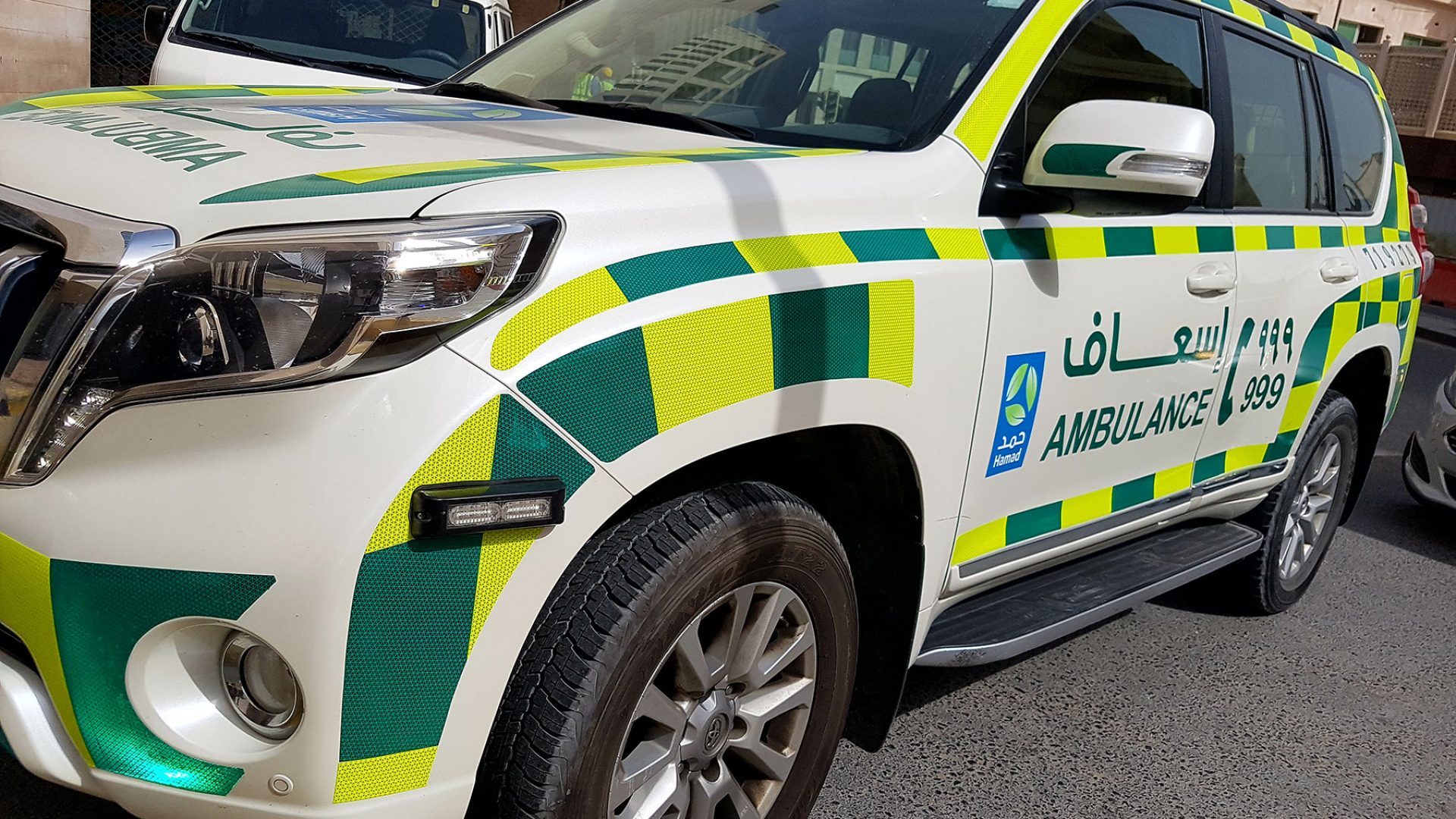Health officials say more people are calling for emergency help amid a sharp surge in Covid-19 cases in Qatar.
The number of calls for help and enquiries in Qatar have increased from some 800 to 1,600 per day, a Hamad Medical Corporation (HMC) official told Doha News on Thursday, as the Gulf state faces a second Covid-19 wave.
Though the numbers have doubled, they are not all directly related to those suffering with symptoms of the novel coronavirus, the HMC source said, noting many concerned residents call the emergency line to make enquiries.
Just days earlier, Rashid Andaila, Senior Manager of Communication Technologies at HMC’s Ambulance Service, urged residents to call 16000 for ambulance services only when experiencing severe symptoms to allow for resources to be directed to urgent cases requiring rapid response and medical care.
For other emergencies unassociated with Covid-19, residents should call 999.
Primary Health Care Corporation health centres are also available to help people with any enquiries. Ambulances follow specific health protocols in dealing with Covid-19 patients, especially those with severe conditions, he added.
The HMC advice comes as Qatar continues to witness a surge in cases, many of which include the more severe UK variant. Health officials say more people are now being admitted into Intensive Care Units (ICU) compared to the peak of the first Covid-19 wave in May last year.
Read also: Qatar mulls full lockdown to halt second Covid-19 wave: official
“Since the middle of March, the number of people receiving life-saving medical treatment in our intensive care units has more than doubled and we now have more than 280 people with Covid-19 in intensive care,” said acting chairman of HMC’s ICU Dr. Ahmed Mohamed.
Speaking on Al Rayyan TV, the doctor said the intensity of the second wave could soon see yet more precautionary measures imposed if required, including a full lockdown for a period of two to three weeks. This would help slow down the number of daily active cases across the country, he said.
A full lockdown is “the best approach to stop the spread of the virus. If people continue to mix and attend work as normal, as well as events, exhibitions and social gatherings – this will make an already infectious virus to spread in a drastic manner,” he said.
“To put this into perspective, at the peak of the first wave in May 2020, we had around 220 patients in intensive care. It is clear that people are becoming sicker and experiencing more severe symptoms in this second wave of the virus,” he added.
The health official also said laboratory tests confirm the presence of new variants in Qatar, which he said may have entered the country through travellers, transit, or even during peak hours at Hamad International Airport.
“In the past two weeks alone, we have seen an 82% increase in the number of people infected with the virus in ICU,” he added. Some 40% of the cases in intensive care during the current wave are under the age of 50.
UK contagious strain
The UK Covid-19 variant has been a significant factor in the recent increase in ICU admissions.
This is because the UK variant is more transmissible than the original strain of Covid-19, meaning that it can pass more easily from person to person and can cause more severe illness. People infected with this specific variant are more likely to need intensive care and require hospitalisation.
Which is more concerning is the fact that the second wave is also hitting children below the age of 14.
Dr. Mohamed said that the new covid-19 strains may have entered the country through travellers, transit, or even during peak hours at Hamad International Airport.
However, director of Public Health at the MoPH Sheikh Dr. Mohamed bin Hamad al-Thani explained that people can still take proactive steps to protect themselves and reduce their chances of infection.
Read also: ‘Highly infectious’ UK variant to blame for rise in Covid-19 cases
“Very early on in the global efforts to produce Covid-19 vaccines, Qatar was clear that it wanted to only procure internationally approved, safe and effective vaccines for its population,” said al-Thani.
“The two Covid-19 vaccines currently being used in Qatar – Pfizer/BioNTech and Moderna – have both been shown to be effective at preventing severe symptoms due to the UK variant,” he added.
Dr. Mohammed also stressed that the applied methods of treatment for all Covid-19 variants are the same with no difference in terms of efficacy.







